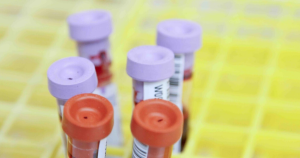If you have been charged with a DUI in Florida, you are probably concerned about your future. One of the best legal defenses is to challenge the alcohol testing conducted by law enforcement. When law enforcement pulls you over for drunk driving in Fort Lauderdale, they will probably ask you to take a set of field sobriety tests. They might ask you to blow on a breathalyzer machine that measures the level of your breath-alcohol concentration.
Prosecutors Must Prove that You Were Under the Influence of Alcohol
Prosecutors must prove that you are guilty of driving while intoxicated beyond a reasonable doubt. Many Florida DUI cases hinge on your chemical, blood, or breath test. When a prosecutor cannot prove that the DUI testing was accurate, a jury will not convict you of the DUI. Many people are surprised when they find out how often blood tests and breathalyzer tests are wrongly used.
Florida DUI Limits
In Florida, it is illegal to drive a motor vehicle while under the influence of drugs or alcohol. Prosecutors must prove all of the following elements of a Florida DUI beyond a reasonable doubt:
- The defendant drove or was in actual physical control of the vehicle, and
- While the defendant was driving or in actual physical control of the vehicle, the defendant either:
- Was under the influence of alcohol, a chemical substance, or a controlled substance to the extent that his normal faculties were impaired, and/or
- The defendant has blood or breath-alcohol of .08 percent or more grams of alcohol per 100 milliliters of blood or 210 liters of breath
In many cases, law enforcement determines if your normal faculties are impaired by showing a video of your field sobriety tests. Additionally, they will submit the results of your breath, urine, or blood test to prove that you were driving while under the influence of alcohol.
Many people assume that Florida DUI charges always involve alcohol. However, many people who are charged for DUIs due to drugs are frequently prosecuted, as well. Law enforcement will need to prove that they detected either the defendant’s blood or urine.
Types of DUI Tests Used by Law Enforcement in Florida
Florida has an implied consent law when it comes to DUIs. Law enforcement must have probable cause to believe that the driver was driving or in actual physical control of a vehicle while under the influence of drugs or alcohol. Many times, law enforcement officers do not have probable cause to pull a driver over. They need to prove that they had probable cause to believe that the driver was driving or in actual physical control of a vehicle while under the influence of drugs and/or alcohol.
Breathalyzer Tests and DUI Charges in Florida
Law enforcement in Florida commonly requires a driver who has been arrested for a DUI to submit to a breathalyzer test. Florida law enforcement uses the Intoxilyzer 8000. Breathalyzer tests use infrared light to detect the percentage of alcohol in the suspect’s breath. The results of breathalyzer tests are often far from accurate. There are several important ways to challenge the results of breathalyzer tests, including the following:
- An operator error: the law enforcement officer who conducted the test is unlicensed to do so, or has an expired license. When this happens, the results of the test are inadmissible
- Testing errors: The breathalyzer machine measures blood alcohol content at the time of the test, not when you were driving. When law enforcement delay testing, the results of the test might not be accurate
- Simulator solution errors: sometimes, law enforcement officers who are administering the test fail to include the value of the simulator solution that they use in the machine, making the results of the test inadmissible
- Machine errors: If the breathalyzer machine is malfunctioning because it is improperly calibrated or Florida has not approved the machine, the results will be inadmissible
- Other chemicals interfered with the breath test results: sometimes products like cough syrup or nail polish contain alcohol. The alcohol in these products can interfere with the results of the breathalyzer test. Acetaldehyde, acetone, and toluene can also show up as alcohol and wrongly interfere with the test
Urine Tests and DUI Charges in Florida
Urine tests are the second type of chemical tests that Florida law enforcement use to measure the blood alcohol content of a driver. Law enforcement officers often use a urine test if they suspect that the driver used drugs or a combination of alcohol and drugs. Urine tests can deduct the following types of drugs in their system:
- Cocaine
- Heroin
- Marijuana
- Pain pills
- Certain type of medication
As with blood tests, law enforcement must follow certain procedures when they are administering urine tests. When a controlled substance is present in the urine, law enforcement needs to conduct a screening process called an immunoassay. This process can take up to 20 minutes to receive a reading after the suspect submits the urine sample. There are many opportunities for law enforcement to make a mistake when processing the test. Urine samples often do not show an accurate presentation of a controlled substance. Instead, it shows metabolites which are trace chemicals that remain in the blood.
Blood Tests and DUI Charges in Florida
Law enforcement officers often require a suspect to submit a blood test to determine their blood alcohol content. When conducted properly a blood test will measure a suspect’s blood alcohol content and determine whether certain controlled substances are found in the blood. Your attorney can request a portion of the blood sample that law enforcement used to charge you with a DUI. An independent lab can read the test and determine whether law enforcement accurately measured your blood alcohol content.
Contact Our Experienced Florida DUI Defense Law Firm Today
Fort Lauderdale lawyer Mark Solomon, P.A. has helped many defendants face their DUI charges. He has extensive experience and knows all of the ways that law enforcement can fail to accurately conduct a chemical test. Contact Mark Solomon, P.A. today to schedule your initial consultation.

You made a good point when you shared that it is illegal for someone to drive a vehicle when he is under the influence of drugs or alcohol. It is because anything could happen when someone is not in the right state of mind. I would like to think if someone needs to work as a driver, he should consider looking for a reliable place that can provide substance testing.
I like that you said that some laws require blood testing to gather information about your health. A friend of mine told me that he is looking for a service that can help his mother to have a blood test to determine deficiencies, and she asked if I had any suggestions. Thanks to this helpful article, I’ll be sure to tell him that consulting a trusted concierge lab service can help them receive a convenient service at home
There are a number of different tests, but the variation in correctness is what matters. I think it’s essential to use a trustworthy breathalyzer that gives accurate results. My law enforcement buddy was raving about how exact and effective the scram remote breath alcohol testing with gps location monitoring is. It is essential to employ high-quality tools since accurate testing might lead to an exoneration or conviction.
If the breathalyzer machine is malfunctioning because it is improperly calibrated or Florida has not approved the machine, the results will be inadmissible, Thank you for sharing your great post!
Reply